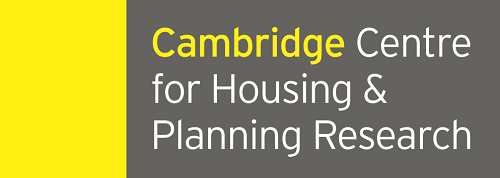Pitfalls of Technology Enabled Care Pilots

The second Phase of the TAPPI project (TAPPI2) has enabled six testbed sites around the UK to trial innovative technology solutions which aim to improve the lives of older and vulnerable people, to enhance people’s sense of independence, and to enable them to live in their own homes for longer.
The programme’s Evaluation and Shared Learning Partner - the Cambridge Centre for Housing and Planning Research - has worked closely with each of the testbeds to understand what works for implementing technology enabled care pilots, and what challenges might be encountered along the way.
While many innovative projects involve some element of experimentation and trial and error, the learning from TAPPI2 can help inform projects to ensure common issues can be minimised.
Here are 10 pitfalls to avoid in the implementation of a TEC project:
- Starting co-production too late. Co-producing innovations with the tenants who will be using the technologies is essential for ensuring the solutions devised meet people’s needs and aspirations, and are successful in the long run. Engaging tenants after key decisions have already been made can reduce tenants’ sense of ownership over the project, and can prevent this from happening.
- Assuming one size fits all. Different people have very different needs and preferences, and have different ideas of what they want to get out of using technology. If people receive technology that they don’t want or need, they are unlikely to use it. People should therefore have choice over the kind of technology they engage with, and TEC services should be personalised.
- Not having a dedicated project manager. Implementing a successful TEC project requires adequate resourcing, and lessons from the second Phase of the TAPPI project highlight that where there is a project manager who can dedicate time to the TEC project, rather than squeezing it in alongside other responsibilities, the project is more likely to run smoothly.
- Thinking about internet connectivity too late. Internet connectivity is needed for many types of technology to perform at full functionality. Having reliable internet connections in place is therefore an important foundation for TEC projects. Thinking about this too late can result in delays, which can be frustrating for tenants.
- Underestimating digital exclusion. Many people in the UK lack basic digital skills, and older people are especially likely to be digitally excluded. If a TEC project is using technologies which require tenants to actively engage with them, it is likely that digital skills support will be required, both for tenants and for staff. In order to be effective, TEC projects of this kind should provide ongoing digital skills support.
- Not getting organisational buy in. The most successful TEC projects have support from the highest levels of their organisation. Understanding of the vision of what the technology pilot is aiming to achieve from the strategic levels of an organisation, as well as at operational levels, means that projects will be better supported. It also means that success stories from the pilot will be more likely to be scaled up and implemented more widely across the organisation.
- Believing that technology is a fix-all solution. Technologies can have a range of positive impacts, and can be transformative in helping people to achieve their personal goals. However, there are many things that technology cannot fix, including some of the issues which might be most important to people. For instance, physical home adaptations may be needed to enable people to confidently move around at home, and to be able to use their home as they wish, and where these adaptations are not in place, new technologies may not have the desired impact.
- Relying too heavily on one technology supplier. It can be helpful to shop around when looking for technologies that meet the needs and aspirations communicated by tenants. There may be many different options on the market, and some suppliers may be more accommodating than others in working with housing and care providers to deliver solutions which work for them.
- Introducing too many new technologies at once. Particularly where people have little experience of using technologies, introducing too many technologies at once can be overwhelming, and can mean that people don’t get their full benefit. Introducing a few new technologies gradually can enable people to get to grips with them before they learn to use any further devices.
- Forgetting about evaluation. In order to work out how effective the TEC project has been, it is important to have a robust evaluation. This will be important going forward for decisions around whether to scale up the project. This will need to be factored in from the start of the project to ensure that there is time to collect the data needed. The data needed will depend on the aims of the project, and what you are measuring.
The Cambridge Centre for Housing and Planning Research (CCHPR), led by Dr Gemma Burgess, is a University of Cambridge Research Centre, and is part of the Department of Land Economy. Find out about CCHPR role as the TAPPI Phase 2 ‘Evaluation and Shared Learning’ partner.

Comments
Add your comment